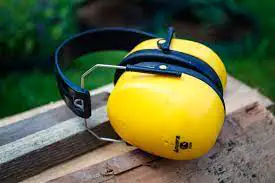Soccer is a sport that requires not just physical skills, but also mental toughness and focus.
Whether you’re a professional player or just starting, focus can make all the difference on the field.
In this article, we’ll explore what focus in soccer means, why it’s important, and how to improve it.
Let’s get started.
Quick Navigation
- 1. What is Focus in Soccer?
- 2. Why is Focus Important in Soccer?
- 3. How do you focus in Soccer?
- 4. The impact of external distractions, such as spectators or noise, and how to manage them
- 5. Techniques for staying focused during long periods of inactivity, such as between plays or halves
- 6. Techniques for quickly regaining focus after a mistake or setback on the field
- 7. Strategies for overcoming performance anxiety and staying calm under pressure
- Final Thoughts
1. What is Focus in Soccer?
Focus in soccer refers to the ability to concentrate and stay mentally sharp during the game. This includes staying focused on the task at hand, such as dribbling, passing, or shooting, as well as maintaining a clear and composed state of mind. It’s about avoiding distractions and keeping your mind on the game.
2. Why is Focus Important in Soccer?
Focus is a crucial component of success in soccer for several reasons:
- It helps you make quick and accurate decisions on the field.
- It allows you to stay in the moment and avoid getting too high or too low after a good or bad play.
- Focus enables you to stay focused on the ball and anticipate the next move.
- It helps you maintain your physical and mental preparation throughout the game.
3. How do you focus in Soccer?
There are several ways to improve your focus in soccer, including:
- Maintaining physical and mental preparation through proper training and nutrition.
- Staying mentally sharp by using visualization and concentration techniques.
- Staying in the moment by not getting too high or too low after a good or bad play.
- Keeping distractions to a minimum, such as avoiding unnecessary conversation during the game.
- Staying focused on the task at hand, whether it be dribbling, passing, or shooting.
4. The impact of external distractions, such as spectators or noise, and how to manage them
External distractions, such as spectators or noise, can greatly impact a player’s focus during a soccer game.
The shouting and cheering of the crowd can be distracting and make it difficult for a player to concentrate on the game.
So, players need to learn how to manage these distractions to maintain their focus and perform at their best.
One technique for managing external distractions is to use noise-cancelling headphones or earplugs to block out sounds from the surrounding environment.

Another strategy is to focus on breathing exercises and visualization techniques to help maintain mental focus.
Additionally, you can also work on your mental toughness and focus during training, so that they are better prepared to handle distractions during games.
By taking proactive steps to manage external distractions, you can maintain your focus and perform at your best on the field.
5. Techniques for staying focused during long periods of inactivity, such as between plays or halves
During long periods of inactivity, such as between plays or halves, it can be easy for a player’s focus to wander.
Maintaining focus and staying mentally engaged during these breaks is crucial for performance on the field.
One effective technique for staying focused during these periods is to use visualization techniques, such as imagining successful plays or scenarios.
Another strategy is to engage in light physical activity, such as stretching or jogging in place, to keep the body and mind active.
You can also use positive self-talk to maintain a positive and confident mindset.
Additionally, drinking water and eating healthy snacks can help maintain energy levels and focus.
6. Techniques for quickly regaining focus after a mistake or setback on the field
Making a mistake or facing a setback on the field can quickly break a player’s focus.
You need to know how to quickly regain your focus to stay mentally sharp and perform at your best.
One technique for regaining focus is to take deep breaths and engage in positive self-talk.
You can also use visualization techniques as mentioned earlier, such as imagining successful plays or scenarios, to regain your confidence and mental focus.
Additionally, players can refocus by mentally reviewing the tasks at hand, such as dribbling, passing, or shooting.
Engaging in physical activity, such as jogging in place, can also help refocus and get the body back into game mode.
7. Strategies for overcoming performance anxiety and staying calm under pressure
Performance anxiety and pressure can be major factors that impact a player’s focus and performance in soccer.
Players have to develop strategies for overcoming these challenges to perform at their best.
The best strategy for overcoming performance anxiety is to engage in deep breathing exercises and visualization techniques to calm the mind and reduce stress.
Another strategy is to focus on the present moment and not get caught up in worries about the future or regrets about the past.
Players can also seek support from coaches, teammates, or mental health professionals if needed.
==>>You can also read: How do I get rid of anxiety in soccer here
Final Thoughts
Focus is a vital component of success in soccer.
By staying focused on the task at hand, maintaining a clear and composed state of mind, and avoiding distractions, you can improve your performance on the field and take your game to the next level.
Whether you’re a beginner or a seasoned player, developing and maintaining focus in soccer can help you reach your full potential.
Don’t forget to check out my e-book mental training techniques for soccer players here.


